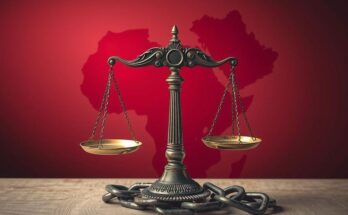In the lush countryside of western Denmark, Boon Young Han eyes the shadows of her past. As a child adopted from South Korea, she fell in love with taekwondo, but her journey led her to a startling discovery: many adoptees were taken without their parents’ consent, often sent overseas for profit. Han highlighted the undeniable pain of having one’s identity obscured, lamenting, “I was adopted to a good family, but that doesn’t really negate any of my rights to know where I came from…”.
Han, now 50, stands among the Danish Korean Rights Group, which successfully urged the South Korean government to investigate its international adoption practices. This groundbreaking effort culminated in a report from the Truth and Reconciliation Commission acknowledging human rights abuses tied to adoptions. Youngeun Koo remarked, “I’m glad to see these long-standing issues finally receiving official recognition…”.
Since 1953, over 200,000 South Korean children found families abroad, with glaring issues surrounding the legality of their adoptions. Many were taken without knowledge of their birth parents, according to a damning report that examined cases from 1964 to 1999. Instances of falsifying records and evading protocols were rampant, further complicating the adoptees’ searches for their true identities.
The commission uncovered that adoptive families often faced minimal vetting, with adoption processes sometimes occurring at staggering speeds. Han pointed out how the entire system became profit-driven, stating, “The ways that the children have been procured has been anything but legal…”.
Post-war poverty prompted foreign aid to flood into South Korea, yet mismanagement left a lack of structure. Religious organisations took control of welfare services, leading to a priority shift where international adoption became the answer to pressing social issues. Koo expressed dismay over how agencies funded themselves through these adoptions.
Katelyn Hemmeke’s story echoes the sentiments of many. Adopted as an infant, she discovered at 26 that her records were falsified and she had been taken without consent. “Wouldn’t you be angry if you were stolen?” Hemmeke posed. Activists like Han worry that without sufficient documentation, recognition of human rights violations associated with their adoptions remains elusive.
The commission has recognised human rights abuses in 56 of the reviewed 100 cases, but as the inquiry faces a looming deadline, many activists demand an extension. “We want to restore our true identity,” Han asserted, urging the need to confront the painful realities of their pasts and unveil the truth about their origins.
Boon Young Han and other adoptees are pushing for recognition of the human rights abuses linked to South Korea’s international adoptions. A recent investigation revealed that many children were taken without consent and often placed in poorly vetted homes. The Truth and Reconciliation Commission has acknowledged these abuses, but challenges remain in restoring identities and obtaining access to adoption records. Activists are fighting for transparency and recognition of their pasts, highlighting the ongoing impact of these experiences on their lives.
The revelations regarding South Korea’s international adoption practices expose a dark history of human rights abuses, where countless children were adopted without proper consent or documentation. The ongoing investigation by the Truth and Reconciliation Commission marks a vital step towards recognition and healing for those affected, yet the path forward remains fraught with challenges. Activists continue to demand transparency in adoption records and seek restoration of their identities as they navigate this complex and personal journey to uncover the truth about their origins.
Original Source: www.washingtonpost.com



